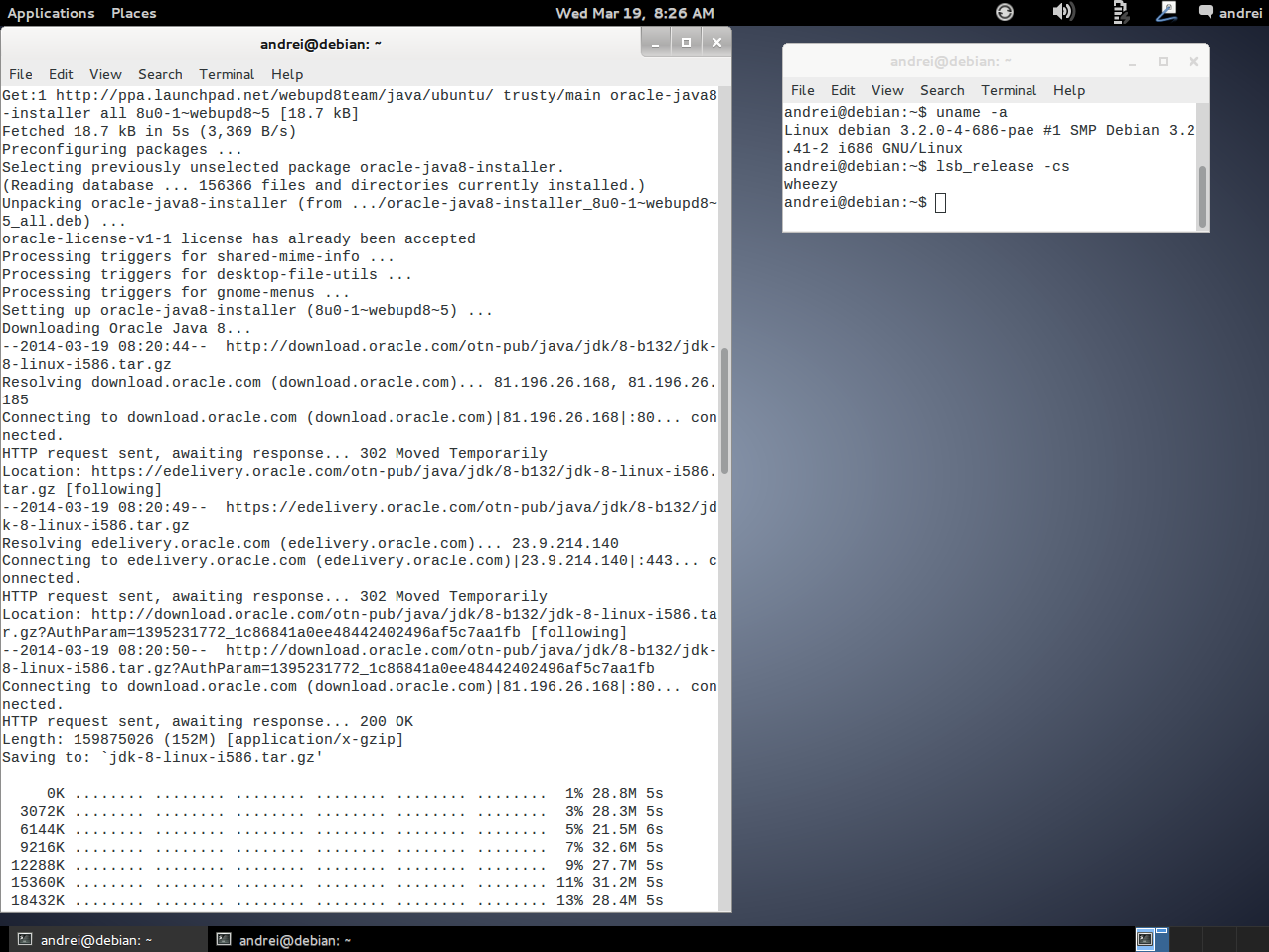

- Debian install java how to#
- Debian install java update#
- Debian install java license#
- Debian install java download#
In some cases the installer may fail to download the Oracle Java 16. Java HotSpot(TM) 64-Bit Server VM (build 16+36-2231, mixed mode, sharing)$ javac -version

Java(TM) SE Runtime Environment (build 16+36-2231) Example with output that shows Oracle Java 16 set as default: $ java -version To check which Java version is set as default on your system, you could run java -version and / or javac -version. This package is set as a recommended package for the Oracle Java 16 installer, that's why installing oracle-java16-installer with -install-recommends also installs oracle-java16-set-default.

If this is installed, Oracle JDK 16 is set as default remove this package, so Oracle Java 16 is not set as default (unless it's the only Java version on the system). You can control if Oracle JDK 16 is the default JDK version or note with the help of the oracle-java16-set-default package.
Debian install java update#
Sudo add-apt-repository ppa:linuxuprising/javasudo apt updateĪdd the Oracle Java 16 PPA repository (and its key) and update the software sources on Debian and other Linux distributions based on Debian (but not Ubuntu and Ubuntu-based) using:Įcho "deb focal main" | tee /etc/apt//linuxuprising-java.listĪpt-key adv -keyserver hkp://:80 -recv-keys 73C3DB2A
Debian install java how to#
How to install Oracle JDK 16 On Ubuntu, Debian, Linux Mint, Pop!_OS or Zorin Os using an APT PPA repositoryĪdd the Oracle Java 16 PPA repository and update the software sources on Ubuntu, Linux Mint, Pop!_OS or Zorin Os using the following commands: You might also be interested in: How To Install / Switch Between Multiple Java Versions Using SDKMAN The PPA provides Oracle JDK 16 for 圆4 and aarch64 architectures, these being the only 2 architectures for which Oracle provides the latest Java 16. Oracle does offer DEB packages for Oracle Java, however, these packages simply copy the Java binaries to /usr/lib/jvm, without doing anything else, so it's exactly the same as copying the Java directory to that location yourself. Instead, it automatically downloads, installs (with some tweaks such as better font rendering, add applications menu entries, etc.) and optionally sets Oracle Java 16 as the default Java (runs update-alternatives, exports the JAVA_HOME environment variable, etc.) on your system. This Oracle Java 16 installer is based on the Web Upd8 Java package (so the credits go to its original creators), with minor modifications, and it does not contain any Oracle Java binaries. I recommend you install that instead of Oracle Java 16, which will probably become unavailable soon. ] Oracle Java 17 LTS has been released recently. Instead of Oracle Java, you could use open source JDK builds, like those offered by AdoptOpenJDK Or Zulu OpenJDK.
Debian install java license#
Oracle Java uses a commercial license starting with Java 11, which allows downloading and using it at no cost for development and testing only, but it requires paying a fee to use it in production. I'd like to note that I don't recommend using Oracle Java, however I'm making this available to those who need it. See what's new in Oracle Java 16 by visiting the release announcement. Oracle JDK 16 will receive a minimum of two quarterly updates, before being followed by Oracle JDK 17 in September 2021.

Those wanting to install the latest Oracle Java 16 (released recently) on Ubuntu, Debian, and Linux distributions based on these, like Linux Mint, Pop!_OS, etc., can now do so using the Linux Uprising PPA. ] Oracle Java 16 has reached end of life, and has been removed from the PPA.


 0 kommentar(er)
0 kommentar(er)
